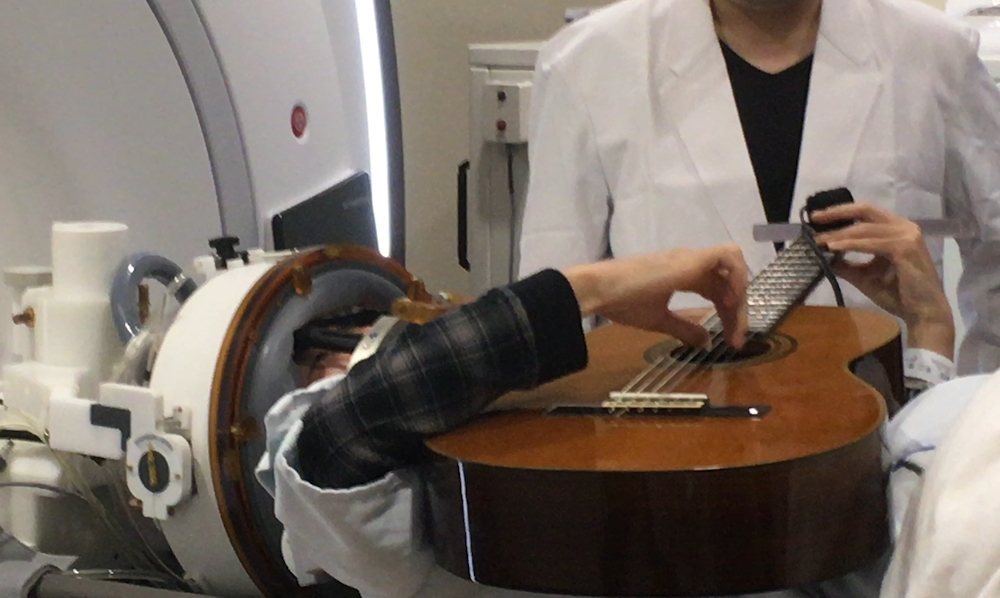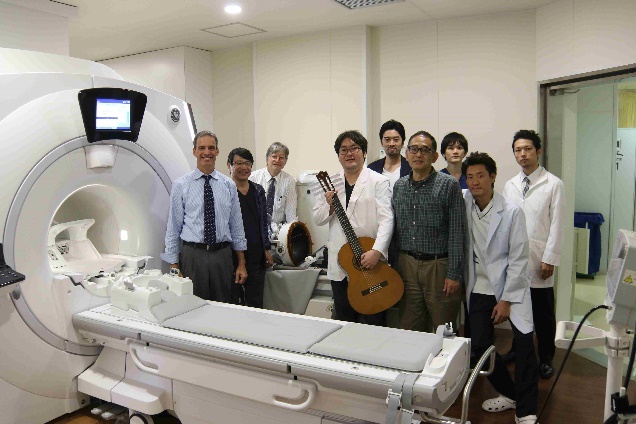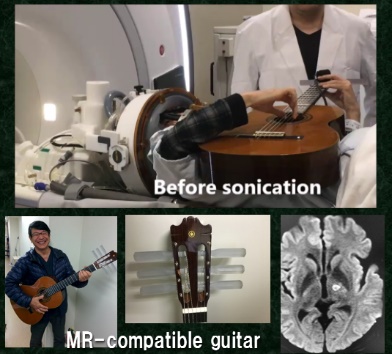 Researchers in Japan have treated a patient with hand dystonia with focused ultrasound (FUS) for the first time, enabling a classical guitarist to play music again.
Researchers in Japan have treated a patient with hand dystonia with focused ultrasound (FUS) for the first time, enabling a classical guitarist to play music again.
The patient is part of a clinical trial assessing the feasibility and safety of using MR-guided FUS to ablate the ventrooralis (Vo) nucleus of the thalamus for the treatment of focal hand dystonia. The single-arm study will treat one side of the brain to improve the affected hand in up to 10 patients with Insightec’s Exablate Neuro system. Patients will be monitored for one year after the procedure. The study is being supported by the Focused Ultrasound Foundation.
Dystonia is a movement disorder characterized by involuntary, sustained muscle contractions that frequently cause twisting or abnormal posture. Dystonia can occur focally in the hands, leading to writer’s cramp and musician’s dystonia. These disorders, which originate from the pallido-thalamo-cortical circuit in the brain, are hard to treat and can be extremely disabling for professionals that have to use their hands. With a successful history of radiofrequency ablation (RFA) being used to perform thalamotomies to cure focal hand dystonia, FUS could be a non-invasive alternative treatment that does not use ionizing radiation and has decreased risks.
 The first patient treated in the study is a 35-year-old professional classical guitarist with a nine-year history of focal dystonia in his right hand – abnormal finger movements only appeared when he tried to play guitar. He underwent various conservative treatments, including physiotherapy, acupuncture, and oral medication without significant benefit. Eventually he gave up performing and became a music teacher. He sought new options at Tokyo Women’s Medical University, where he learned about the clinical trial and decided to participate instead of undergoing RFA.
The first patient treated in the study is a 35-year-old professional classical guitarist with a nine-year history of focal dystonia in his right hand – abnormal finger movements only appeared when he tried to play guitar. He underwent various conservative treatments, including physiotherapy, acupuncture, and oral medication without significant benefit. Eventually he gave up performing and became a music teacher. He sought new options at Tokyo Women’s Medical University, where he learned about the clinical trial and decided to participate instead of undergoing RFA.
 “I have treated nearly 600 patients with several types of dystonia with various surgical techniques,” said Takaomi Taira, MD, PhD, neurosurgeon and principal investigator at Women’s Medical University in Tokyo. “If this study proves successful, then focused ultrasound could be an appealing option for these patients who want control back in their hands. I am very grateful for the generosity of the Foundation in advancing this technology that can lead to happiness for many patients.”
“I have treated nearly 600 patients with several types of dystonia with various surgical techniques,” said Takaomi Taira, MD, PhD, neurosurgeon and principal investigator at Women’s Medical University in Tokyo. “If this study proves successful, then focused ultrasound could be an appealing option for these patients who want control back in their hands. I am very grateful for the generosity of the Foundation in advancing this technology that can lead to happiness for many patients.”
